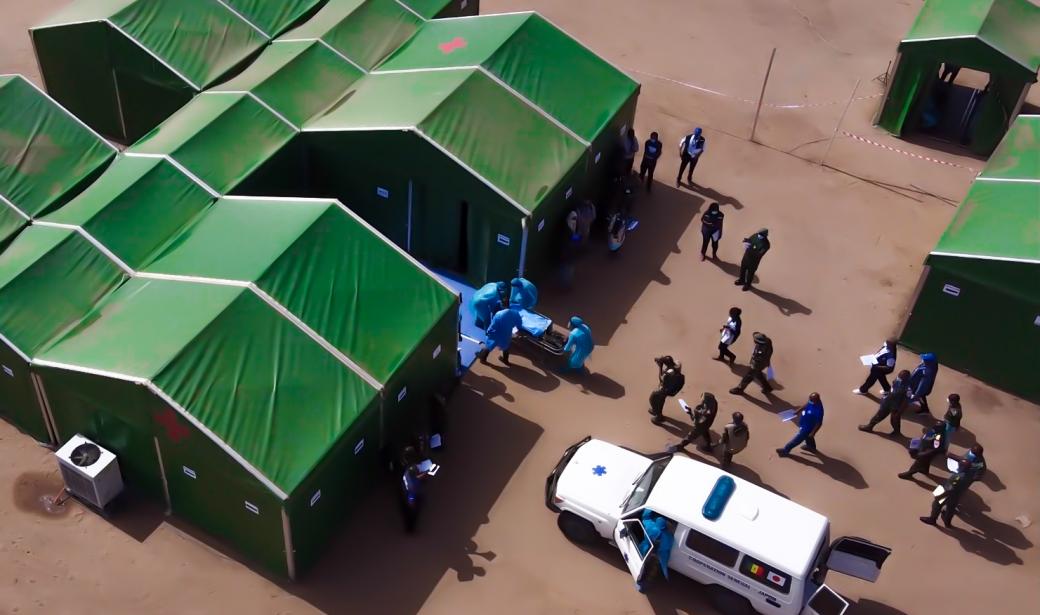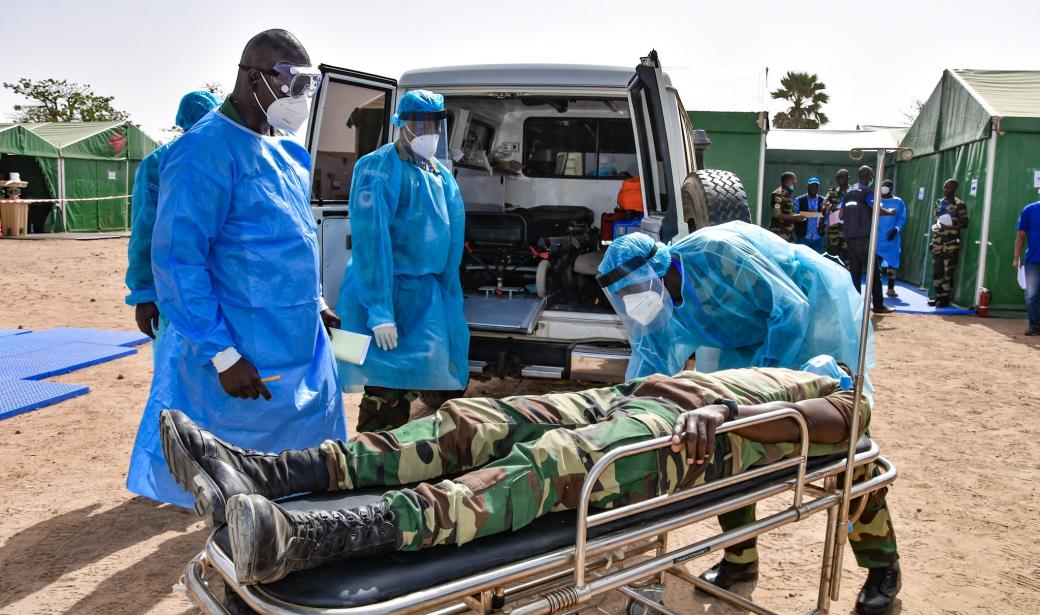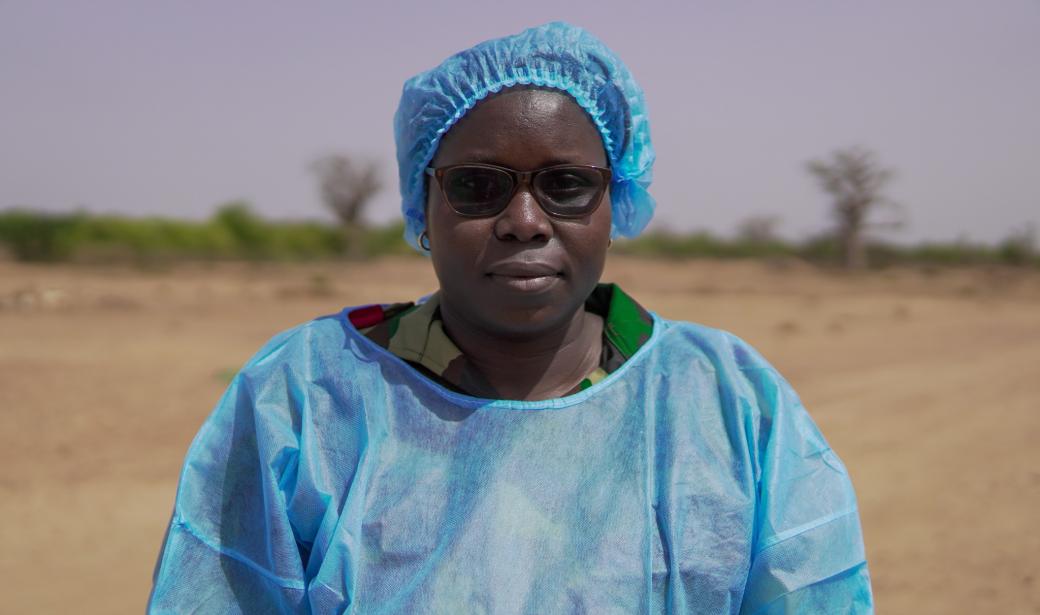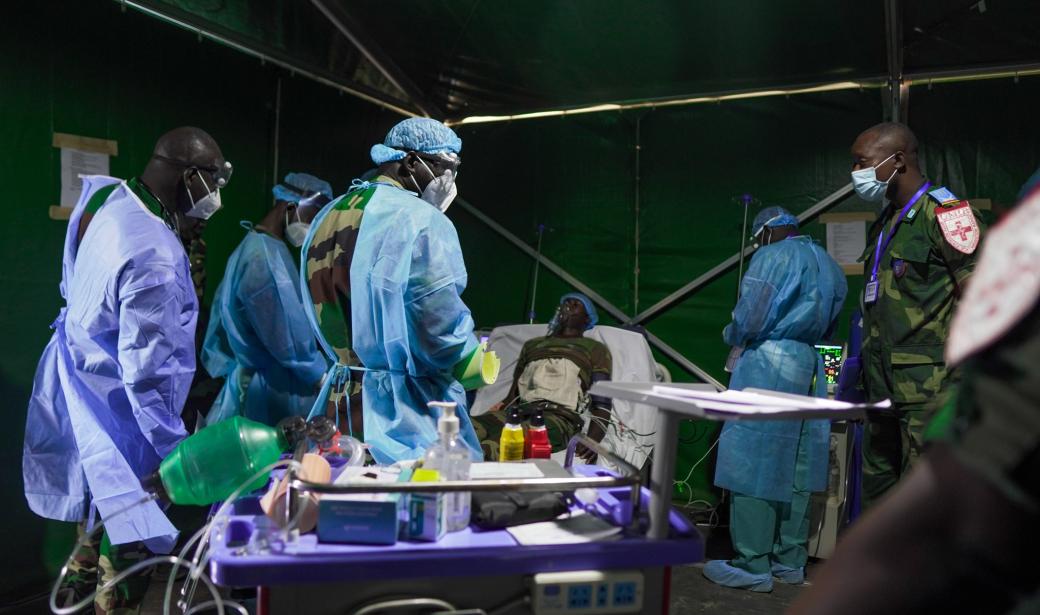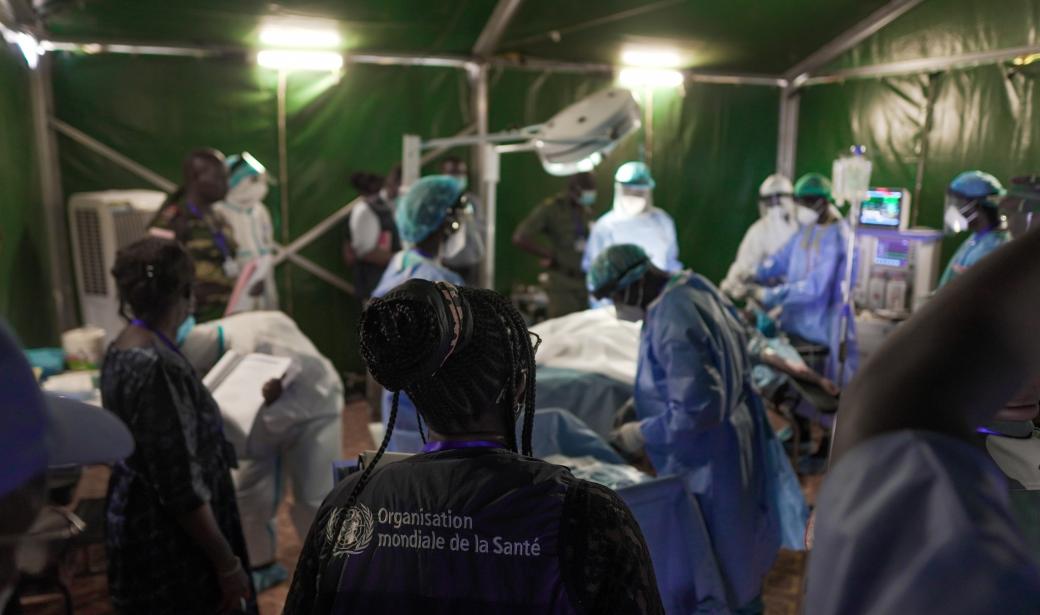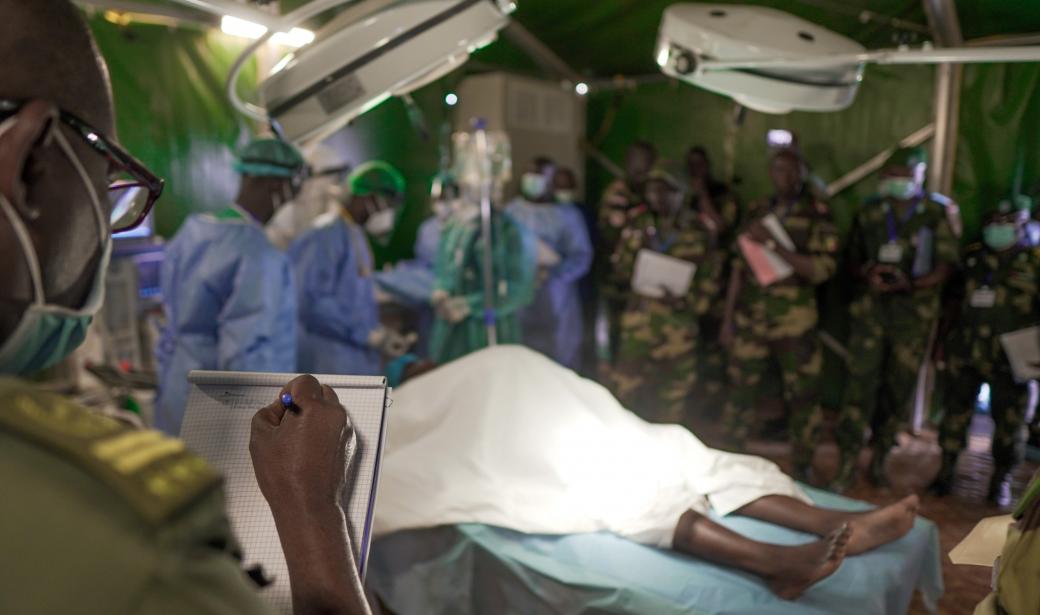Thies – With more than 100 public health emergencies every year – ranging from disease outbreaks to natural and human-made disasters, Africa reports the heaviest burden globally. World Health Organization (WHO) is supporting countries in the region to reinforce their emergency medical teams to improve the quality and timeliness of health services during disasters and other emergencies.
Simulation exercises are crucial to testing the readiness and capacity of emergency medical teams. In May 2022, Senegal’s military emergency medical team carried out a drill, with support from WHO, to bolster its capacity and obtain international certification for high standard of emergency response.On a dusty ground at a military base in Thies, a town 70 km from the Senegalese capital Dakar, a field hospital set up in less than 72 hours – one of the key requirements to obtaining international certification and optimal capacities to respond to public health emergencies in the Region. The 59-member emergency medical team has been hard at work, determined to meet the stringent requirements for quality and effective emergency response.
Additionally, the field hospital must have at least 30 beds, able to treat 100 patients a day and have sufficient power to run an operation room.
“Our power capacity is higher than what is required and we have enough water for a week,” says Sergeant Ibrahim Ba, in charge of logistics, as he points at the three generators and water tanks near the facility. “We are ready.”
Additionally, the field hospital must have at least 30 beds, able to treat 100 patients a day and have sufficient power to run an operation room.
“Our power capacity is higher than what is required and we have enough water for a week,” says Sergeant Ibrahim Ba, in charge of logistics, as he points at the three generators and water tanks near the facility. “We are ready.”
The paramedical staff, who helped set up the hospital, are now ready to admit patients. Each member of the medical team put their personal protection equipment, respecting the medical operation criteria in the context of an outbreak.
“The simulation exercise will allow us to know where we are at in the classification process, to identify our weaknesses, and to develop competencies in being deploy everywhere according to internationals standards,” says Colonel Amady Barro Mbodj, Deputy Director of the military health services and the main evaluator of the exercise.
“The simulation exercise will allow us to know where we are at in the classification process, to identify our weaknesses, and to develop competencies in being deploy everywhere according to internationals standards,” says Colonel Amady Barro Mbodj, Deputy Director of the military health services and the main evaluator of the exercise.
“We are the first team in the (patient handling) chain. We check for the vital signs and get the I.V line ready… all that is needed to triage (the patient) according to the COVID-19 severity level, be it mild, severe or critical,” says Captain Mariam Kamara. “In an emergency, what is different is the speed of action and the fewer staff and materials available (compare with a normal hospital).”
An international emergency medical team must be multidisciplinary and have the experience of working in resource-scare settings. Senegal’s team has already been deployed in the Democratic Republic of Congo and Sierra Leone.
For WHO, Senegal can serve as an example to other African countries and inspire them to strengthen their capacities to quickly and efficiently respond to health crises.
An international emergency medical team must be multidisciplinary and have the experience of working in resource-scare settings. Senegal’s team has already been deployed in the Democratic Republic of Congo and Sierra Leone.
For WHO, Senegal can serve as an example to other African countries and inspire them to strengthen their capacities to quickly and efficiently respond to health crises.
In the field hospital, “patients” go through well-defined process to limit the risk of infections. Clinical care units are separated and every health worker plays a very precise role.
Dr Thierno Balde, Regional COVID-19 Incident Manager at the WHO Regional Office for Africa, points out that “this simulation exercise was designed as a tool to increase case management capacities in a context of outbreak. It is crucial for the region.”
Dr Thierno Balde, Regional COVID-19 Incident Manager at the WHO Regional Office for Africa, points out that “this simulation exercise was designed as a tool to increase case management capacities in a context of outbreak. It is crucial for the region.”
On day 3 of the simulation exercise, it is the turn of the surgeons to be tested in an outbreak context. A “pregnant woman” who was admitted the day before after having tested positive to COVID-19 needs a C-section in emergency.
She has already met with a psychiatrist.
“My role is to ensure that psychosocial care is provided to patients and medical staff”, says Commandant Khadim Fall, a psychiatrist. “It is a stressful context for everyone.”
Obstetrical surgery is one of the services required to be certified. At this level of classification, the team must be able to conduct seven major of 15 minor operations per day.
WHO invited representatives from Cameroon, Ethiopia, Guinea, Congo and the Democratic Republic of Congo to observe the simulation exercise. Most of them belong to their national army, which often has significant logistical capacities, others are civilians. “We want to show African countries that setting up an emergency medical team is possible,” Dr Balde says. “We hope it will inspire them to do the same.”
She has already met with a psychiatrist.
“My role is to ensure that psychosocial care is provided to patients and medical staff”, says Commandant Khadim Fall, a psychiatrist. “It is a stressful context for everyone.”
Obstetrical surgery is one of the services required to be certified. At this level of classification, the team must be able to conduct seven major of 15 minor operations per day.
WHO invited representatives from Cameroon, Ethiopia, Guinea, Congo and the Democratic Republic of Congo to observe the simulation exercise. Most of them belong to their national army, which often has significant logistical capacities, others are civilians. “We want to show African countries that setting up an emergency medical team is possible,” Dr Balde says. “We hope it will inspire them to do the same.”
The “patient” and her “baby” are well. Surgeons, anaesthetists and nurses are tidying up the medical tools. The simulation exercise is now over.
Senegal’s army health services will do their own assessment. WHO will share its own and continue to guide Senegal’s emergency medical team through the eight-step classification process which can take up to two years.
If Senegal is successful, it will become the first African country to obtain international classification.
Since the COVID-19 onset, WHO has worked with 10 African countries to establish national emergency medical teams.
Senegal’s army health services will do their own assessment. WHO will share its own and continue to guide Senegal’s emergency medical team through the eight-step classification process which can take up to two years.
If Senegal is successful, it will become the first African country to obtain international classification.
Since the COVID-19 onset, WHO has worked with 10 African countries to establish national emergency medical teams.
For Additional Information or to Request Interviews, Please contact:
Vincent Defait
Communication Officer
Regional Office for Africa
Email: defaitv [at] who.int (defaitv[at]who[dot]int)
Collins Boakye-Agyemang
Communications and marketing officer
Tel: + 242 06 520 65 65 (WhatsApp)
Email: boakyeagyemangc [at] who.int (boakyeagyemangc[at]who[dot]int)



